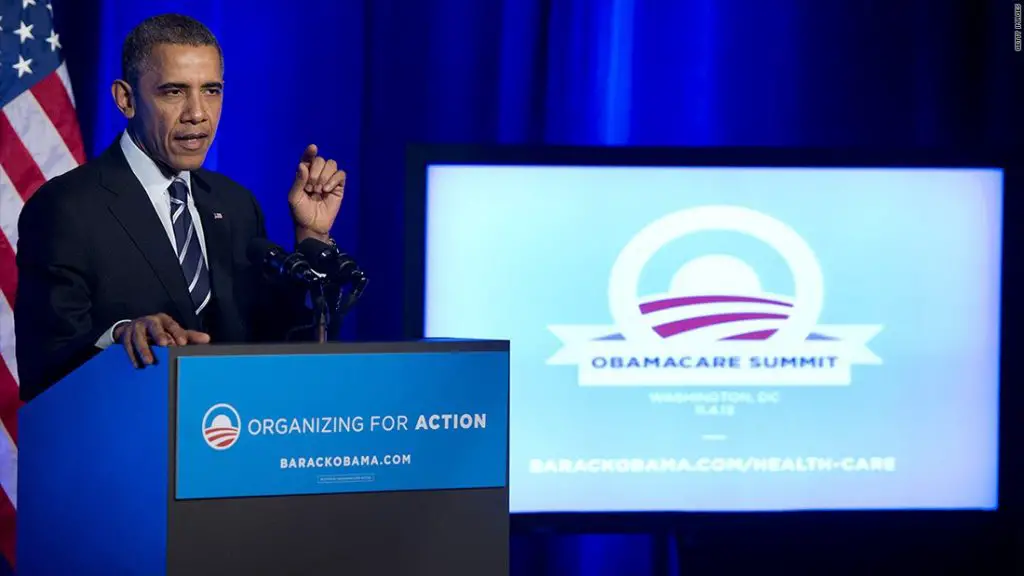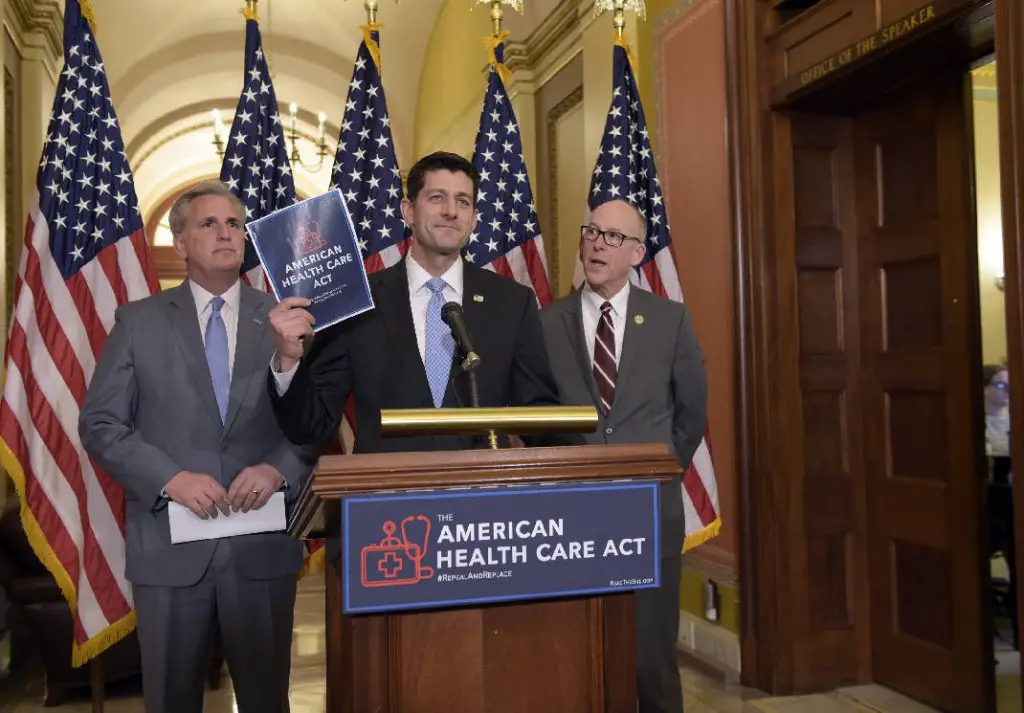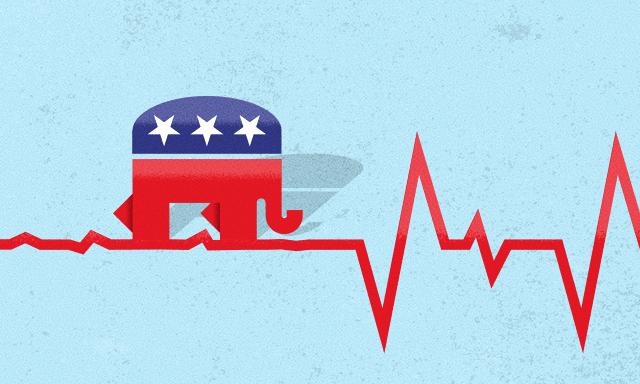Under the American Health Care Act, 23 million Americans would lose insurance — a number equivalent to the entire population of Thailand, or if you prefer a domestic comparison, the New York City metropolitan area.
The bill also cuts the Medicaid budget by $384 million and disproportionately affects the poor, the sick, and the old — the exact people the Affordable Care Act was supposed to help. Even this watered-down version of the AHCA is a far cry from Trump promising that “everybody’s going to be taken care of much better than they’re taken care of now” during his campaign.
“Repeal and replace” has been a rallying cry for Republicans since the Affordable Care Act passed the Senate in 2010, as conservatives across the country vilified what soon became known as “Obamacare,” even though the program proved to be a success.
Seventeen percent of Americans under the age of 65 were uninsured before the ACA’s passage, and only 10 percent remain without insurance today. Obamacare also eliminated pre-existing conditions, lifetime and annual limits, and made sure insurance companies couldn’t charge older customers over three times as much money as their younger counterparts.

The ACA provided protection from predatory insurance policies, and its effectiveness is reflected in the polls. According to Public Policy Polling, voters prefer the ACA to the AHCA by a margin of 53 to 27 percent, and 64 percent say they’d like to see the ACA improved rather than scrapped altogether.
Videos of angry constituents demanding answers from Republican senators and representatives at protests and town halls have circulated across news networks, as Americans across the country have refused to let the Affordable Care Act go quietly. Regardless of the many harmful provisions in the AHCA, it’s clear that the American people would rather keep the current system — because it works.
Under the proposed system, nearly all of the progress made by the ACA would fall by the wayside. States would have the option to apply for waivers that would allow them to eliminate many of the protections the ACA provided, including the prohibition of annual/lifetime limits and pre-existing conditions.
The bill also would allow insurance companies to force sick people to pay more for their coverage, as well as letting them charge older clients up to five times as much as they do for younger customers. Older, low-income Americans would see their health care costs rise the most, and both the independent Kaiser Family Foundation and the Congressional Budget Office have corroborated this.
Women would also suffer, as the state waivers could give states the option to drop things like contraceptives and maternity care. The Medicaid budget reduction cuts contraceptives too, as well as preventing any clinic that offers abortions from receiving Medicaid funding, like Planned Parenthood.
Keep in mind that a mere 3 percent of the services Planned Parenthood performs are abortions; the rest are potentially life-saving procedures like cancer screening (7 percent), prenatal care (13 percent), contraception (31 percent), and STD treatment (45 percent). The new tax-credit system is based off of age, not income, meaning those below the poverty line will again suffer setbacks at the hands of the GOP.
Even the most problematic parts of Obamacare — the insurance mandate and high premiums — won’t be solved by the AHCA, they’ll be exacerbated. The mandate, which forced people without insurance to pay a penalty tax, will be replaced by a premium surcharge.
If a person goes without insurance for more than two months, they’ll be forced to pay 30 percent more for their premiums when they try to buy a new plan. The rising cost of premiums, a popular Republican talking point, will subside, but they’ll be replaced by worse coverage and higher out-of-pocket costs.
The AHCA is a disaster through and through, yet the GOP still plans to try and push it through the Senate. Trump even went so far as to advocate the use of the nuclear option and the filibuster abolished, all for the passage of the new and unimproved health care bill. With all of the vehement opposition to the AHCA and the public approval of Obamacare at an all-time high, why would the GOP be so intent on forcing “Trumpcare” into law? There are two possible answers to this question, and both are equally disturbing.

The first possibility unveils the GOP as incompetent and uncaring. The Republicans bided their time during the Obama presidency, carefully crafting the repeal and replace narrative, always criticizing the ACA while promising a better alternative when they returned to power.
After the past election cycle, winning control over both houses of Congress and the executive branch, the GOP could finally push their healthcare vision through the legislative branch and into action — until they realized constructing actual health care legislation constituted a more difficult challenge than brainstorming an alliterative catchphrase.
With the approval ratings of Congress, Speaker Paul Ryan and Majority Leader Mitch McConnell in the toilet (68, 59 and 55 percent disapproval ratings, respectively), the GOP is under pressure to pass at least one major part of their agenda. They’ve married themselves to the mantra of repeal and replace, and can’t separate themselves from it without looking weak and indecisive.
To prevent this, Republican leadership has simply made the bill a little more palatable to more moderate conservatives in the legislature, rather than address the plan’s many faults.
The second and more sinister reason signifies a blind adherence to a failed ideology. Irrespective of their constituents, who will no doubt suffer because of the Republicans’ plan, the GOP continues to insist that they know best. Ignoring the polls, the statistics and the wealth of evidence demonstrating the ineffectiveness of and lack of support for the AHCA, the Republicans will persistently push their health care agenda because they believe that they are right.
They’ve done the same thing with trickle-down economics (just a cursory look at Kansas and Sam Brownback reveals the inefficacy of that particular strategy), and they’ll do the same for health care — even if it hurts the people they’re sworn to protect.

















